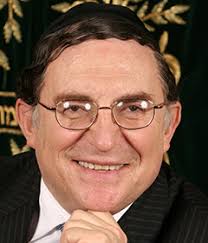
Rabbi Paysach Krohn is a Rav, mohel, author, and lecturer on topics related to ethics and spiritual growth.
He is the author of the bestselling “Maggid” series of books for ArtScroll,, inspired by the stories of Rabbi Sholom Schwadron, who was known as the “Maggid of Jerusalem.”
Q: You inspire countless numbers of people around the globe. Where does your inspiration come from?
Many people inspire me. Who? People who do good things. A person that has accomplished anything worthwhile. That can be men, women, rabbis, teachers, children, students. I have written about them in the Maggid series of books.
Q: How did you, a fifth-generation Mohel in New York, start writing your “Maggid” books?
My mother encouraged me to write. She was a fabulous writer and read a lot of books. I was enamored with my mother’s writing. When I was a child, she would help me write essays and papers. We would sit together and read the editorial column in the newspaper and discuss how we would have written the piece.
When I was 19 years old, Rabbi Sholom Schwadron, the famous Maggid from Yerushalayim came to stay at my parent’s house while visiting America. During his stay at our house, he would tell us many inspiring stories in Yiddish. It occurred to me that many people would benefit from hearing these inspirational stories. However, Rabbi Schwadron didn’t speak English. The thought entered my mind that it would be a good idea to write up his stories for the English speaking audience. That is where the idea for the Maggid stories first came from.
Q: I enjoyed your story that you told of how you lost your cell phone in the airport. Please share it with our readers.
I was in the airport when I noticed two security guards going from person to person. It looked like they were searching for someone. When they saw me, they pointed their fingers and said, “It’s him!”
I thought to myself “Oh no what did I do?”
The two security guards approached me. I asked them,
“Officers, what can I do for you?”
One of the security guards pulled out a cell phone and asked, “Is this your cell phone?”
I said, “No, I am not missing my cell phone.” I stuck my hand into my pocket and I realized that my cell phone was gone!
I took the cell phone from the security guard and said, “That is my phone! Thank you very much. How did you remember me? How did you find me? There are thousands of people going through the airport!”
I thought to myself that he would say he recognized me because of my black hat but he didn’t say that.
“When you passed through security,” the security guard began, “You turned to me and said ‘thank you for being here. You make me feel so safe.’ Do you know that thousands of people pass by everyday and not one person says thank you? You were the first to thank me. I noticed that you had left your cell phone and I wanted to return it to you. I said to myself.’ If I have to go through the entire airport to find you then I will!’ ”
Q: What made you think to thank the security guard? Did you ever think in your wildest dreams that you would see him again holding your phone?
I am a big believer in hakaros hatov, expressing gratitude. Anyone who makes an effort for you, then you owe that person a thank you.
For example, when the baal koreiah, the person who reads from the torah, finishes reading, I will thank him for doing a great job. He took the time to prepare and read for you. I believe that he deserves a thank you.
I would like to share with you another example. When I get off a plane, I go over to the pilot and thank him for the smooth landing. Often I will say, “You landed the plane so well, it was like a feather landing in milk.”
Q: In one of your books, you mentioned that you were invited to speak to a group of teenagers at Links, an organization that provides encouragement, support, and fun outlets for children that have lost a parent. After your speech, you offered to record the blessing that a father gives to a child on Friday night. Today, over 500 orphaned children are a part of this.
What made you have such a sensitivity to orphaned children?
When I was 21, my father passed away. I was the oldest of seven children. I saw how hard it was for my mother. It was painful to watch. It was through that experience that I developed a sensitivity to orphans and widows.
Q: Who do you admire?
There are three people who I see as treasures in our generation.
My Rebbe, Rabbi Dovid Cohen of Brooklyn, NY.
R’ Nosson Scherman, main editor of Artscroll. He edits all my books and that is why my books come out so great. He does a great job.
Rabbi Berel Wein. He has provided so much; Jewish Destiny Foundation, CDs, MP3s, newspapers. He is remarkable.
Rabbi Paysach Krohn’s books are available at artscroll.com
